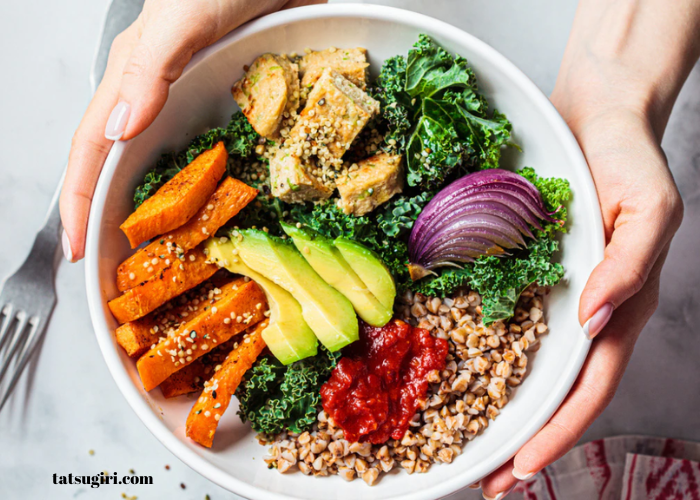In the quest for a balanced and fulfilling life, cultivating healthy habits is not merely an option but a necessity. A sustainable wellness routine forms the cornerstone of physical, mental, and emotional well-being. This article explores how to develop a lasting wellness routine that aligns with your lifestyle, enhances your health, and fosters long-term success.
Understanding Sustainable Wellness
Sustainable wellness is about creating a balanced lifestyle that you can maintain over time without resorting to extreme measures or short-term fixes. It encompasses a range of practices designed to improve overall health and well-being, including physical activity, nutrition, mental health, and sleep hygiene. Unlike fleeting trends or restrictive diets, sustainable wellness focuses on gradual, achievable changes that integrate seamlessly into your daily life.
Setting Realistic Goals
The foundation of any successful wellness routine begins with setting realistic goals. It is crucial to define what you want to achieve and ensure that your goals are specific, measurable, attainable, relevant, and time-bound (SMART). For instance, instead of setting a vague goal like “I want to get fit,” specify it as “I will exercise for 30 minutes, five times a week, for the next three months.” This clarity helps in tracking progress and staying motivated.
Embracing a Balanced Diet
Nutrition plays a pivotal role in any wellness routine. A balanced diet rich in whole foods, including fruits, vegetables, lean proteins, and whole grains, provides the essential nutrients your body needs. Aim to limit processed foods, excessive sugars, and unhealthy fats. Incorporating a variety of nutrient-dense foods ensures you get a broad spectrum of vitamins and minerals.
Consider adopting mindful eating practices, which involve paying attention to your hunger and fullness cues and savoring each bite. This approach can help prevent overeating and promote a healthier relationship with food.
Incorporating Regular Physical Activity
Regular physical activity is integral to a sustainable wellness routine. Engaging in exercise not only improves cardiovascular health and strengthens muscles but also enhances mood and reduces stress. The key is to choose activities you enjoy, whether it’s brisk walking, cycling, swimming, or yoga. The goal is to make physical activity a regular part of your routine.
Mixing different types of exercise—such as aerobic workouts, strength training, and flexibility exercises—can prevent boredom and provide comprehensive health benefits. Remember that even small bouts of activity can contribute to overall fitness.
Prioritizing Mental Health
Mental health is as crucial as physical health in a wellness routine. Stress management techniques, such as mindfulness meditation, deep breathing exercises, and journaling, can help maintain emotional balance. Regularly engaging in activities that bring you joy and relaxation, such as hobbies or spending time with loved ones, can also enhance mental well-being.
Setting aside time for self-care is vital. This might include practices like taking a warm bath, reading a book, or simply enjoying a quiet moment alone. Self-care helps recharge your mental batteries and prevents burnout.
Ensuring Quality Sleep
Sleep is a fundamental component of a healthy lifestyle. Aim for 7-9 hours of quality sleep each night to support overall health. Establishing a consistent sleep schedule, creating a restful sleep environment, and practicing good sleep hygiene can significantly improve sleep quality. Avoiding stimulants like caffeine and electronic devices before bedtime can help your body wind down more effectively.
Building a Supportive Environment
A supportive environment plays a crucial role in maintaining healthy habits. Surround yourself with people who encourage and motivate you to stay on track with your wellness goals. Joining groups or communities with similar interests can provide additional support and accountability.
Moreover, organizing your living space to promote healthy choices—such as stocking your kitchen with nutritious foods and creating a dedicated exercise area—can make it easier to adhere to your wellness routine.
Adapting and Evolving
One of the hallmarks of a sustainable wellness routine is adaptability. Life circumstances, preferences, and needs change over time, and your wellness routine should evolve accordingly. Regularly assess your progress and be open to making adjustments. If certain aspects of your routine are not working, consider experimenting with new approaches or seeking professional guidance.
Overcoming Obstacles
Challenges and setbacks are inevitable, but how you respond to them can impact your long-term success. It’s important to approach obstacles with a positive mindset and view them as learning opportunities. If you miss a workout or indulge in an unhealthy meal, don’t be discouraged. Instead, focus on getting back on track and continuing your efforts.
Developing resilience and persistence is key. Acknowledge your achievements, no matter how small, and use them as motivation to keep moving forward.
Celebrating Successes
Recognizing and celebrating your successes, both big and small, is essential for maintaining motivation and building self-confidence. Set milestones along your journey and reward yourself for reaching them. These rewards can be anything from a relaxing day off to purchasing something you’ve been wanting. Celebrating your progress reinforces positive behavior and keeps you engaged in your wellness routine.
Conclusion
Building a sustainable wellness routine requires dedication, patience, and a willingness to adapt. By setting realistic goals, embracing balanced nutrition, incorporating regular physical activity, prioritizing mental health, ensuring quality sleep, and creating a supportive environment, you can cultivate habits that support long-term well-being. Remember, the journey to wellness is ongoing, and success lies in the consistent effort to maintain a balanced and fulfilling lifestyle. With the right approach, you can achieve lasting health and vitality, enhancing your quality of life and overall happiness.

